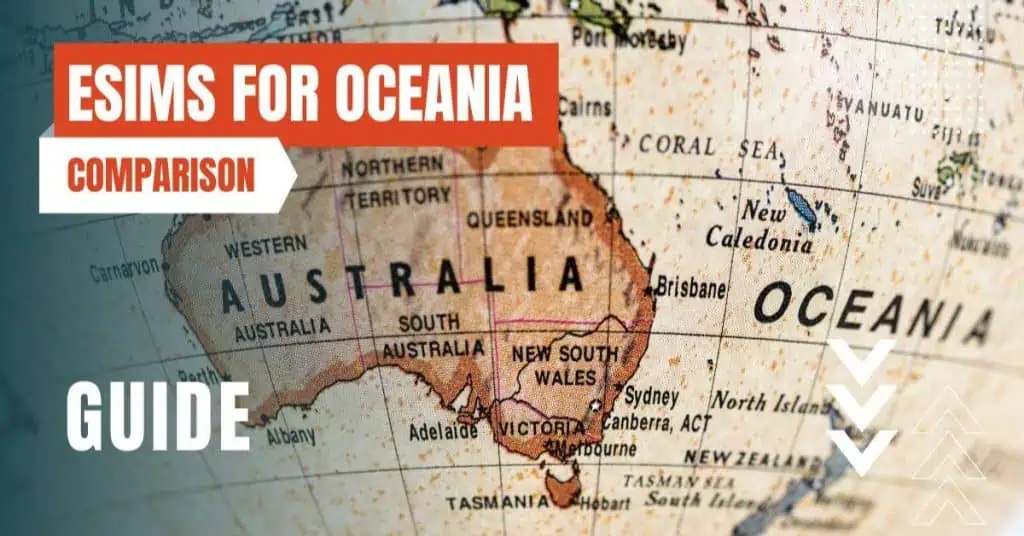All of the products and services we feature are chosen independently. If you click through links we provide, we may earn a commission. Learn more
Written by: Emily Chen
Landmarks in France
- Updated: September 30, 2023 | Published:
France, a country renowned for its rich history, world-class art, breathtaking architecture, and picturesque landscapes, has long captivated the hearts of travelers from around the globe.
From the iconic Eiffel Tower in the heart of Paris to the enchanting Mont Saint-Michel off the coast of Normandy, this diverse and vibrant nation offers a myriad of unforgettable experiences. In this article, we will explore the top landmarks in France that showcase the country’s unique blend of natural wonders, artistic masterpieces, and architectural marvels.
Whether you’re a history enthusiast, a nature lover, or a passionate admirer of art and culture, these destinations are sure to leave you inspired and awestruck. So, pack your bags, and let’s embark on a journey to uncover the magic and allure of France’s most treasured landmarks.
Iconic Landmarks in France
1. Eiffel Tower, Paris

- Best Time to Visit: Spring and Fall
- What to Expect: Panoramic views of Paris, guided tours, restaurants, souvenir shops, and a champagne bar
- Ideal For: Couples, families, solo travelers, architecture enthusiasts
- Yearly Visitor Count: Approximately 7 million
- Geographical Location: Central Paris, Île-de-France region
The Eiffel Tower, a world-renowned symbol of love and engineering marvel, stands at 1,083 feet tall in the heart of Paris. Completed in 1889 for the World’s Fair, it offers breathtaking views of the City of Lights from its three platforms.
Visitors can ascend the tower by elevator or stairs, and guided tours are available for those interested in learning about its history and construction. The tower also houses two restaurants, a champagne bar, and souvenir shops, providing a unique experience at one of the world’s most famous landmarks.
2. Louvre Museum, Paris
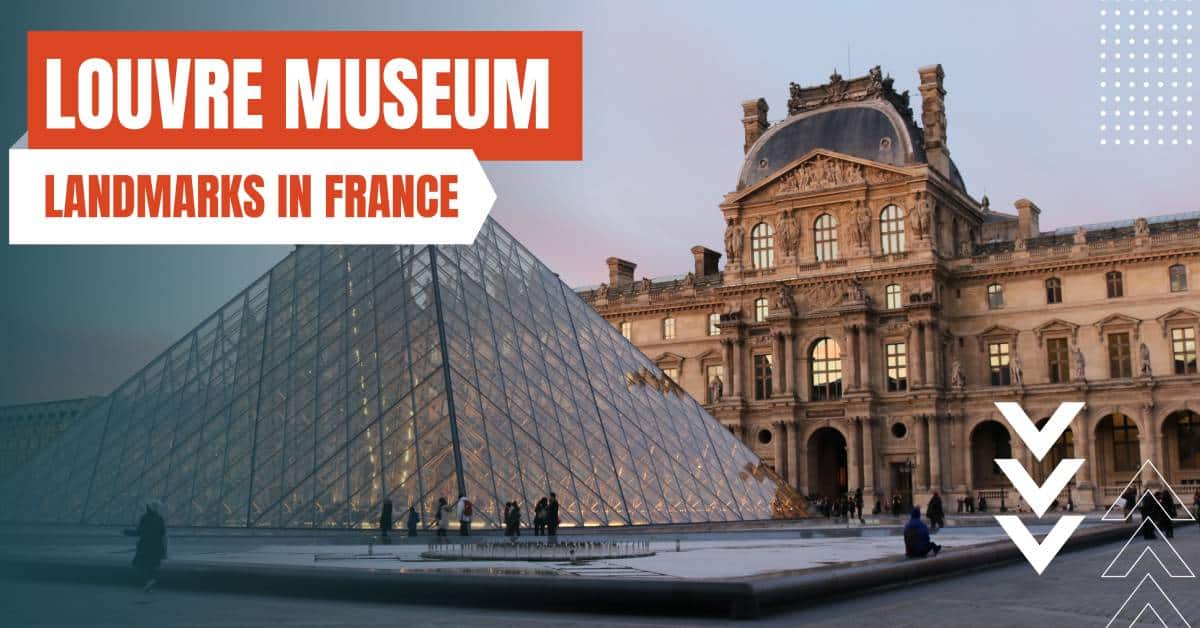
- Best Time to Visit: Winter and late evenings
- What to Expect: A vast collection of artwork, guided tours, workshops, and lectures
- Ideal For: Art lovers, families, solo travelers, history enthusiasts
- Yearly Visitor Count: Approximately 9.6 million
- Geographical Location: Central Paris, Île-de-France region
The Louvre Museum, housed in a former royal palace, is the world’s largest art museum and a historic monument in Paris. Home to over 380,000 pieces of art, including the famous Mona Lisa and Venus de Milo, it offers a comprehensive journey through human history and creativity.
The Louvre features guided tours, workshops, and lectures, providing a rich cultural experience for visitors of all ages. For a quieter experience, consider visiting during winter months or late evenings.
3. Mont Saint-Michel, Normandy
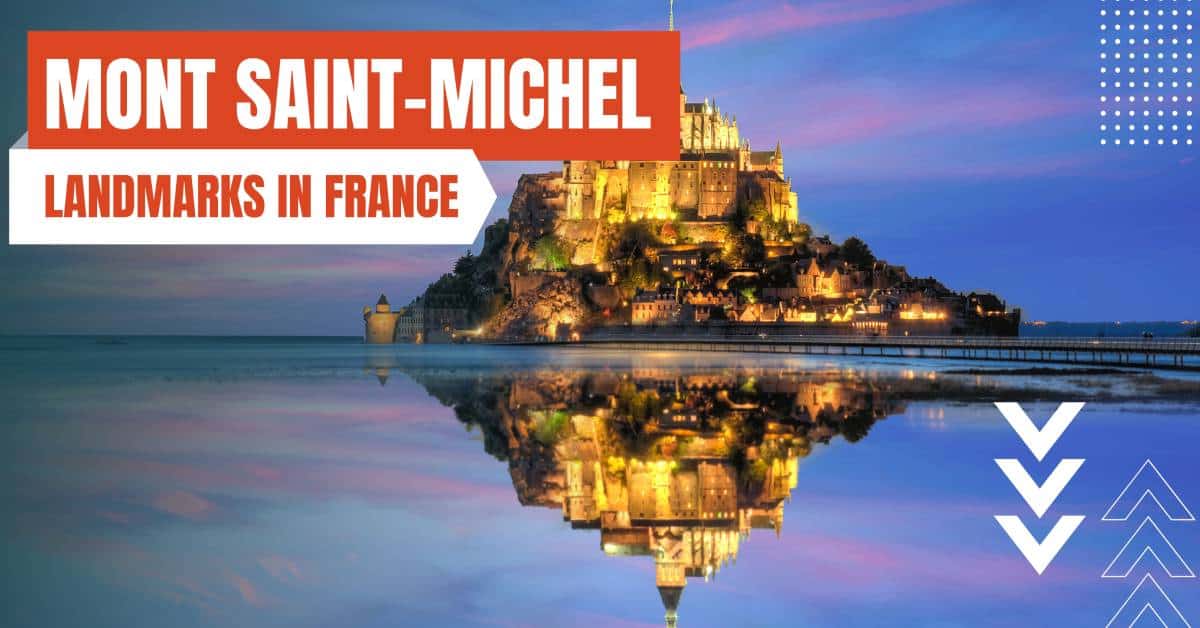
- Best Time to Visit: Spring and Fall
- What to Expect: A medieval abbey, guided tours, panoramic views, souvenir shops, and local cuisine
- Ideal For: Families, solo travelers, history enthusiasts, photographers
- Yearly Visitor Count: Approximately 2.5 million
- Geographical Location: Normandy region, Northwest France
Mont Saint-Michel, a UNESCO World Heritage Site, is a picturesque island commune crowned by a medieval abbey. Located off the coast of Normandy, it is accessible via a causeway during low tide. The site features guided tours, which explore the abbey and its history, as well as stunning views of the surrounding bay.
Visitors can also enjoy local cuisine at nearby restaurants and pick up souvenirs from the charming shops that line the narrow streets.
Traveling to France and need mobile internet? Compare eSIMs for France from over 20+ Prepaid eSIM providers
4. Palace of Versailles, Versailles

- Best Time to Visit: Spring and Fall
- What to Expect: Royal apartments, the Hall of Mirrors, guided tours, expansive gardens, and the Estate of Trianon
- Ideal For: Families, history enthusiasts, garden lovers, photographers
- Yearly Visitor Count: Approximately 8 million
- Geographical Location: Versailles, Île-de-France region
The Palace of Versailles, a UNESCO World Heritage Site, was once the residence of French royalty and now serves as a museum and historic site. Visitors can explore the lavish royal apartments, the famous Hall of Mirrors, and the extensive gardens, which include fountains, sculptures, and the Estate of Trianon.
Guided tours are available to provide insight into the palace’s history, art, and architecture.
5. Notre-Dame Cathedral, Paris
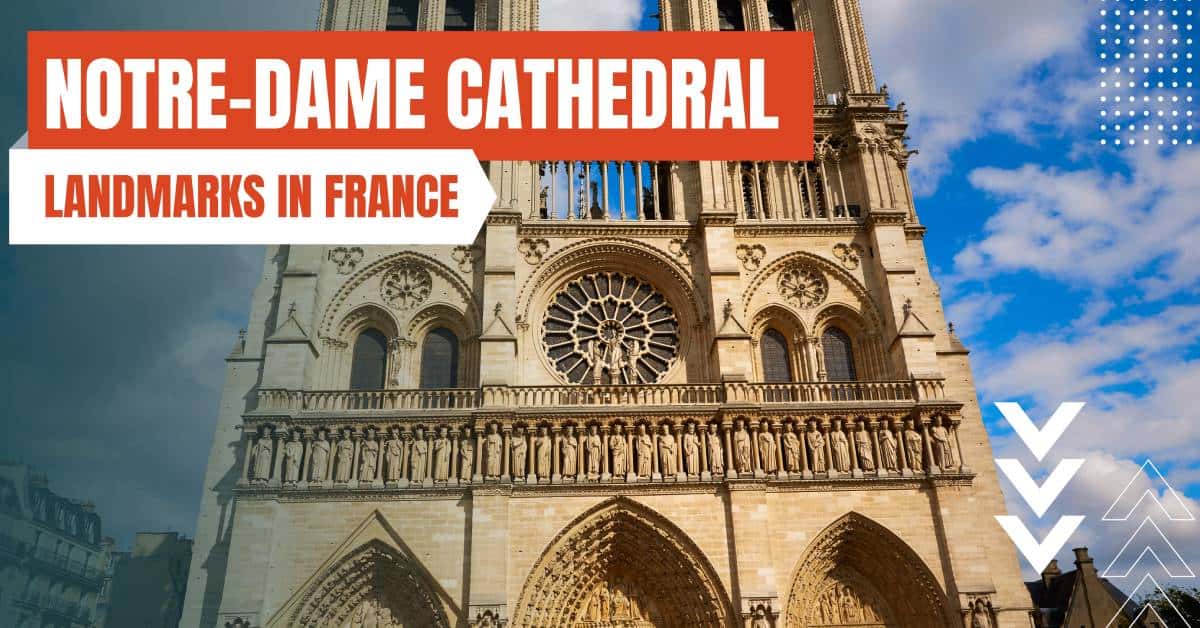
- Best Time to Visit: Spring and Fall
- What to Expect: Gothic architecture, stained glass windows, guided tours, and panoramic views from the towers
- Ideal For: Families, solo travelers, history enthusiasts, architecture lovers
- Yearly Visitor Count: Approximately 13 million (before the 2019 fire)
- Geographical Location: Central Paris, Île-de-France region
Notre-Dame Cathedral, a masterpiece of Gothic architecture, is located on the Île de la Cité in central Paris. While the cathedral suffered significant damage during a 2019 fire, restoration efforts are underway.
Before the fire, the cathedral was known for its stunning stained glass windows, impressive sculptures, and the opportunity to climb its towers for panoramic views of Paris. Keep an eye on its restoration progress and consider visiting once it reopens to the public.
6. Sacré-Cœur Basilica, Paris

- Best Time to Visit: Spring and Fall
- What to Expect: Roman-Byzantine architecture, sweeping views of Paris, guided tours, and the lively Montmartre neighborhood
- Ideal For: Families, solo travelers, history enthusiasts, architecture lovers
- Yearly Visitor Count: Approximately 11 million
- Geographical Location: Montmartre, Paris, Île-de-France region
The Sacré-Cœur Basilica, a Roman Catholic church dedicated to the Sacred Heart of Jesus, sits atop Montmartre, the highest point in Paris. The basilica’s Roman-Byzantine architecture, white stone exterior, and mosaic interior make it a must-see.
Guided tours are available, and visitors can also explore the lively Montmartre neighborhood, known for its artistic heritage and charming streets.
7. Château de Chambord, Loire Valley

- Best Time to Visit: Spring and Fall
- What to Expect: Renaissance architecture, guided tours, expansive gardens, and wildlife reserves
- Ideal For: Families, history enthusiasts, architecture lovers, nature enthusiasts
- Yearly Visitor Count: Approximately 1 million
- Geographical Location: Loire Valley, Central France
Château de Chambord, a jewel of the French Renaissance, is the largest château in the Loire Valley. It features intricate architecture, including a unique double-helix staircase and ornate rooftop terrace.
Visitors can explore the château on guided tours, and the surrounding estate offers expansive gardens, a wildlife reserve, and opportunities for hiking and cycling.
8. Arc de Triomphe, Paris
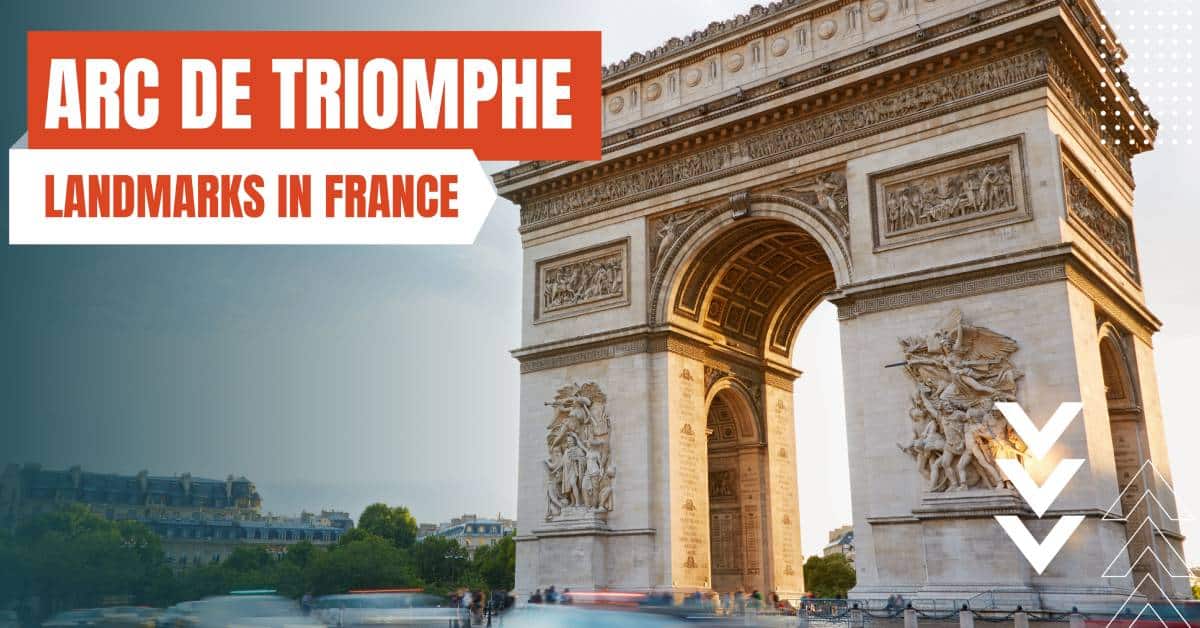
- Best Time to Visit: Spring and Fall
- What to Expect: Panoramic views of Paris, the Tomb of the Unknown Soldier, and the Champs-Élysées
- Ideal For: Families, solo travelers, history enthusiasts
- Yearly Visitor Count: Approximately 1.3 million
- Geographical Location: Central Paris, Île-de-France region
The Arc de Triomphe, commissioned by Napoleon in 1806, is a symbol of French patriotism and victory. Standing at the western end of the Champs-Élysées, it offers panoramic views of Paris from its rooftop terrace.
The monument also houses the Tomb of the Unknown Soldier, paying tribute to fallen French soldiers from both World Wars.
9. Les Calanques, Marseille
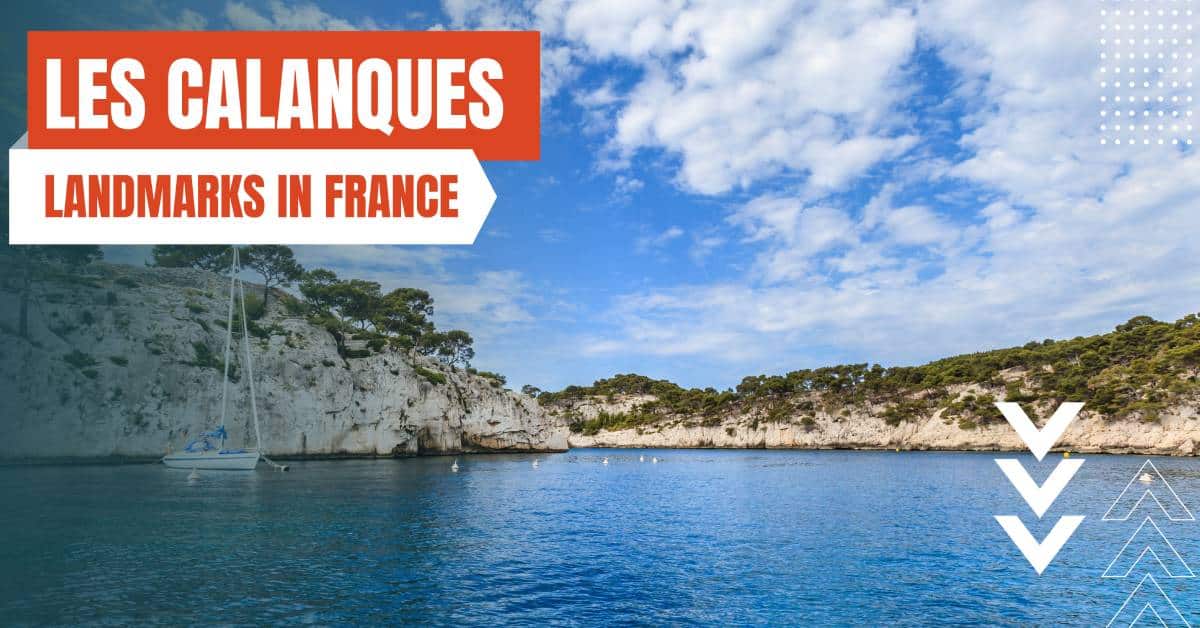
- Best Time to Visit: Spring and Fall
- What to Expect: Turquoise waters, limestone cliffs, hiking, boat tours, and swimming
- Ideal For: Nature lovers, adventure seekers, families
- Yearly Visitor Count: Approximately 2 million
- Geographical Location: Provence-Alpes-Côte d’Azur region, Southern France
Les Calanques, a series of rocky inlets and cliffs along the Mediterranean coast, is a natural wonder located near Marseille. The area offers turquoise waters, limestone cliffs, and stunning landscapes, perfect for hiking, boat tours, and swimming. A visit to the Calanques is ideal for those looking to experience France’s natural beauty.
10. Carcassonne, Occitanie
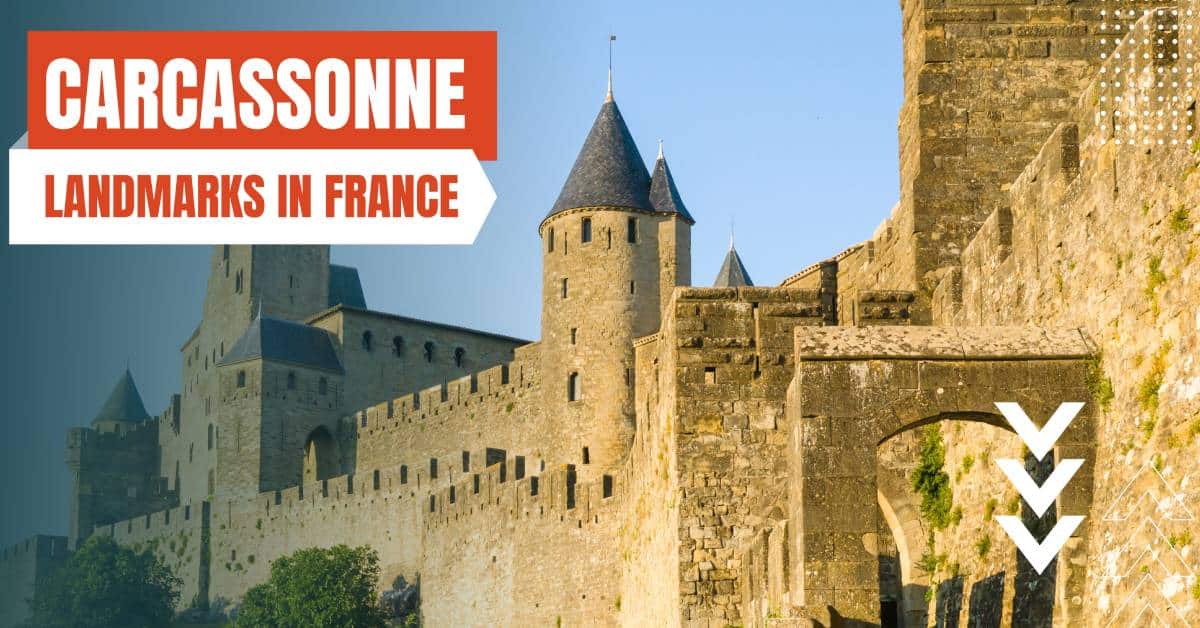
- Best Time to Visit: Spring and Fall
- What to Expect: A medieval fortified city, guided tours, museums, and local cuisine
- Ideal For: Families, history enthusiasts, solo travelers, photographers
- Yearly Visitor Count: Approximately 3 million
- Geographical Location: Occitanie region, Southern France
Carcassonne, a UNESCO World Heritage Site, is a medieval fortified city located in the Occitanie region. Its well-preserved ramparts, towers, and cobblestone streets transport visitors back in time.
Guided tours are available to explore the city’s history and architecture, and local museums provide additional insight into the region’s past. Visitors can also enjoy local cuisine at nearby restaurants and browse the charming shops for unique souvenirs.
11. Dune of Pilat, Nouvelle-Aquitaine
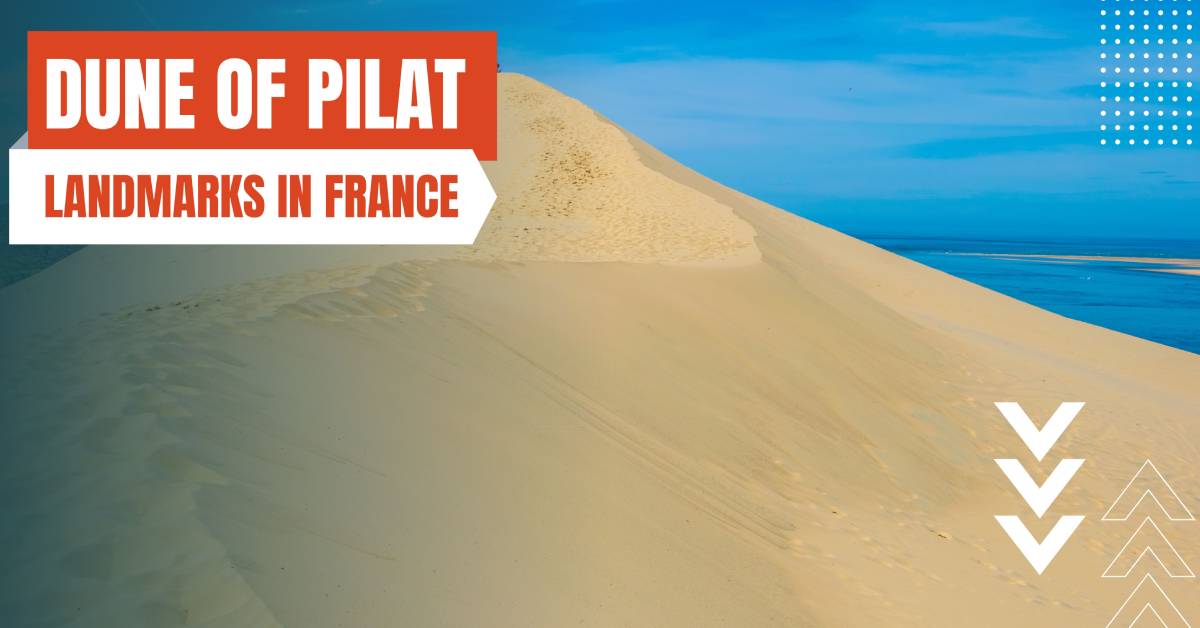
- Best Time to Visit: Spring and Fall
- What to Expect: Europe’s tallest sand dune, stunning views, paragliding, and nearby beaches
- Ideal For: Nature lovers, adventure seekers, families
- Yearly Visitor Count: Approximately 2 million
- Geographical Location: Nouvelle-Aquitaine region, Western France
The Dune of Pilat, the tallest sand dune in Europe, is a natural marvel located on the Atlantic coast. Rising over 350 feet high, it offers panoramic views of the surrounding forest, ocean, and the Banc d’Arguin nature reserve. Visitors can climb the dune, go paragliding, or enjoy the nearby beaches and pine forests.
The dune is perfect for those looking to experience France’s diverse landscapes.
12. Gorges du Verdon, Provence
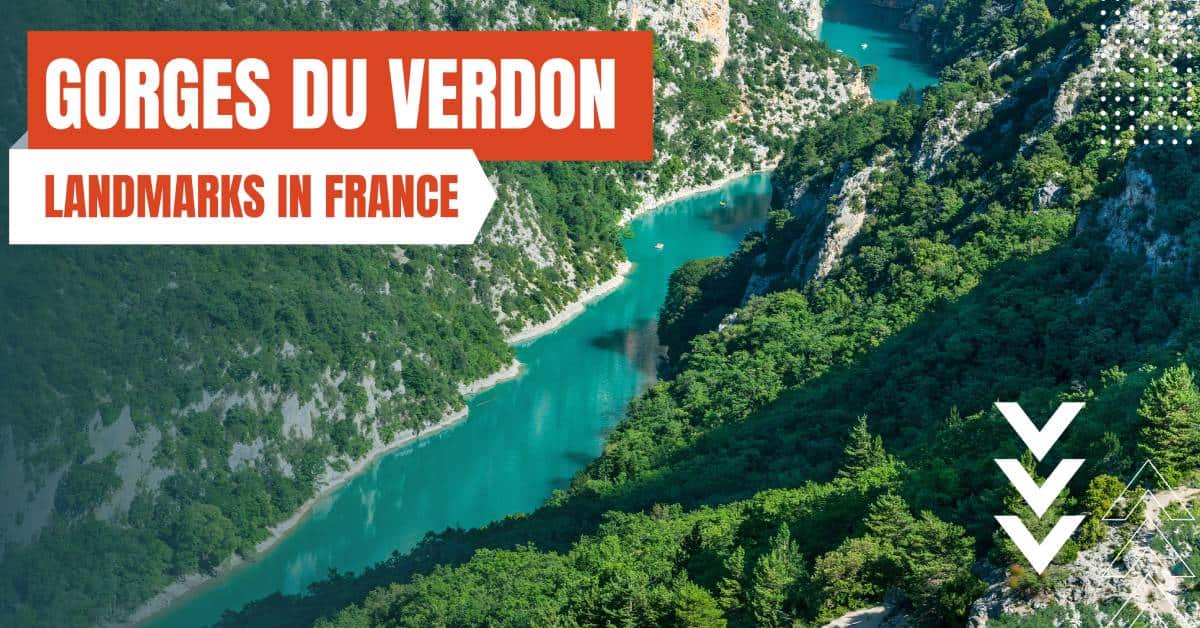
- Best Time to Visit: Spring and Summer
- What to Expect: A dramatic river canyon, hiking, kayaking, rock climbing, and scenic drives
- Ideal For: Nature lovers, adventure seekers, families
- Yearly Visitor Count: Approximately 1.5 million
- Geographical Location: Provence-Alpes-Côte d’Azur region, Southeastern France
The Gorges du Verdon, often referred to as the “Grand Canyon of Europe,” is a spectacular river canyon in southeastern France. With its turquoise waters and dramatic limestone cliffs, the gorge is a popular destination for hiking, kayaking, rock climbing, and scenic drives.
Visitors can explore the area on foot, by boat, or by car, taking in the stunning views and natural beauty that the Gorges du Verdon has to offer.
By entering your email & signing up, you agree to receive promotional emails on eSIMs and insider tips. You can unsubscribe or withdraw your consent at any time.

About The Author
Related Articles
Spread the Word, Share the Joy
Compare eSIMs
Why keep the secret to yourself? Spread the joy of eSIMradar and let everyone in on the eSIM experience!

Easy eSIM Comparison for Your Needs
Simplifying your search! Easily compare eSIM plans tailored to your specific needs

Coverage in 210+ Countries
Benefit from our extensive eSIM comparison with 30+ providers in over 210 destinations.

Save money without second-guessing
Our platform helps you maximize value, ensuring competitive prices.

Enjoy Hassle-Free Travel Abroad
Whether you’re on holiday or a business trip abroad, stay connected with ease and focus on enjoying your experiences,
Find Your Perfect eSIM & Exclusive Deals!
Find your ideal eSIM effortlessly and stay connected in style wherever your adventures take you! Get exclusive deals and discounts at your fingertips, ensuring you get connected for less on your travels!




